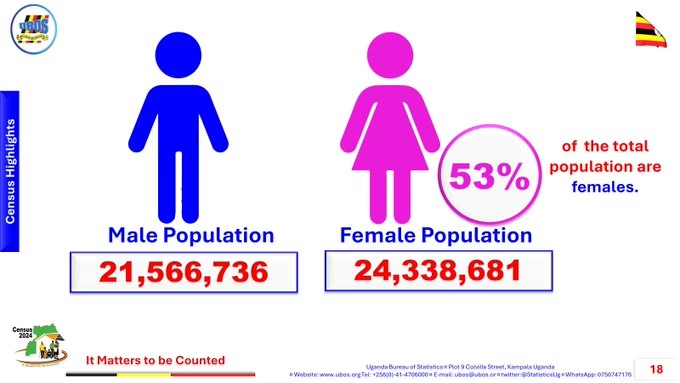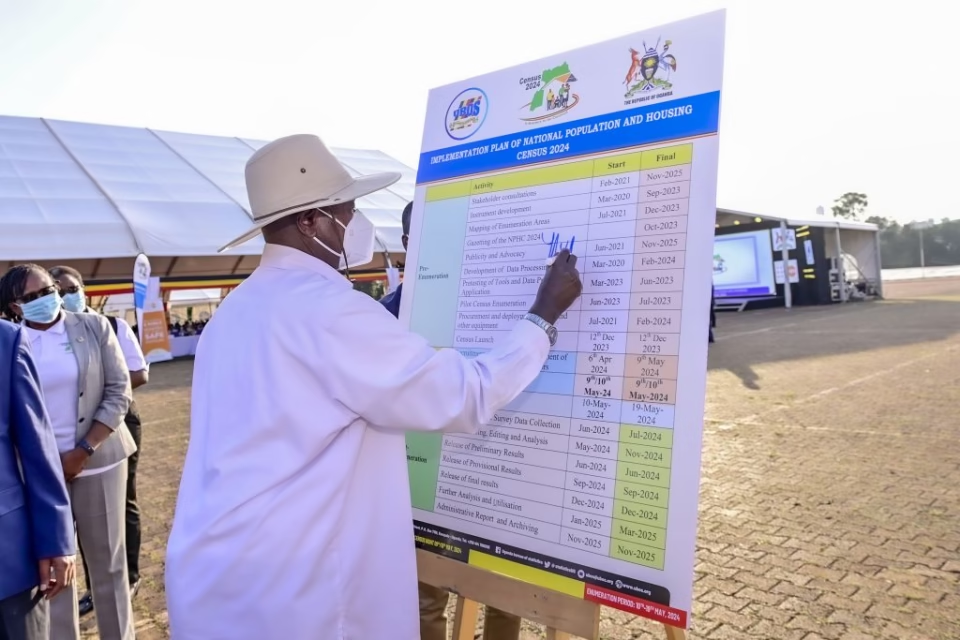The census took place on May 10, 2024, which was likely designated as a public holiday to ensure widespread participation and accurate data collection.
The 2024 census was significant for several reasons:

- Digital Census: It was Uganda’s first digital census, aiming to collect more accurate data.
- Population Insights: The census provided valuable information on population size, distribution, age structure, literacy rates and housing conditions.
- Development Planning: The data collected will inform policies, programs and resource allocation for the country’s development.
Some key findings from the 2024 census report include:

- Population Growth: Uganda’s population surged to 45.9 million, with an annual growth rate of 2.9%.
- Youth Demographics: Half of the population is under 18, highlighting a youth-dominated demographic.
- Employment Challenges: 42.6% of youths aged 15-24 are not in employment, education or training.
- Access to Services: Progress has been made in accessing improved water sources (81.1%) and electricity (53.4%), but there’s still room for improvement.
The census data will play a crucial role in guiding Uganda’s development efforts and implementing the Sustainable Development Goals.



